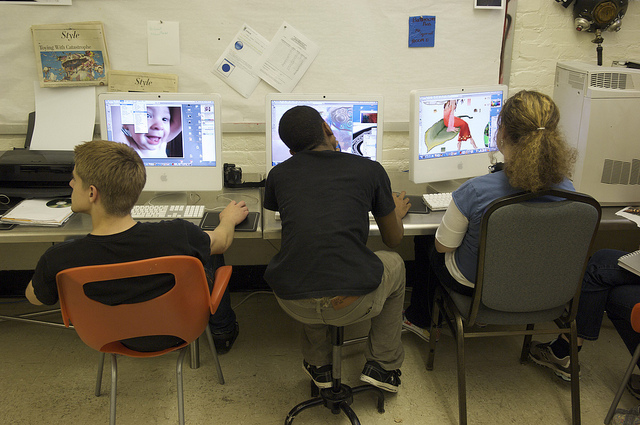Establishing Order In Your Classroom: Five Common Approaches to Classroom Management

This article introduces different classroom management approaches, with the self-discipline and the desist approach at opposite ends. There’s no single method for managing a classroom effectively, because different situations require different approaches. The root of the problem should be the key factor in deciding which approach should be used.
The Self-Discipline Approach
This approach is based on the belief that students are responsible individuals who can assess and correct their own misbehavior, and that teachers and students have trusting relationships built on respect. With its self-governing style, the self-discipline approach has four models, which are discussed next.
Inner Discipline
Developed by Barbara Coloroso, inner discipline takes a longer route in correcting student misbehavior. As the name indicates, the goal here is to help students develop inner discipline. When students have self-discipline, they will have control and responsibility for their own actions. Whether or not it’s a choice with a positive outcome, unless there is a threat to the student or others, teachers should let students make their own choices.
Using inner discipline, when students misbehave, teachers should ask what students and teachers could do together to change. Students and teachers cooperate to build a community where they share the power. An underlying premise of this approach is that students do not have lasting discipline when quick solutions such as reward systems are used.
According to Coloroso, there are three types of teachers: “brick-wall,” “jellyfish,” and “backbone.” As the names suggest, “brick-wall” teachers are strict, demanding students to follow the rules without questioning and there are no exceptions. “Jellyfish” teachers enforce the rules like the way a jellyfish moves. The rules are not clear, and teachers often change the rewards and punishments, so students cannot expect consistency from these teachers. Last, “backbone” teachers give strong support, but from behind.
Assertive Discipline
Although assertive discipline is based on the fact that teachers have the power to ask and require specific actions from students, this approach still has students’ best interests in mind. Canter found that teachers who use this discipline are not authoritarian, because they are forceful yet calm in enforcing the rules and limits. This discipline allows teachers to present clear rules. It gives students the clear idea that misbehaviors have consequences and that, if they want positive consequences instead of negative ones, they can make choices that will lead to positive consequences.
The Desist Approach
This approach is often used due to its easy implementation. Unlike the self-discipline, where students are responsible, the desist approach makes teachers the responsible party. This approach can be viewed as a power system, because teachers have the power, and they set the specific rules to give students discipline and correct student behaviors. The approach focuses on assertive discipline and behavior modification, as outlined next.
Behavior Modification
This approach centers around four types of punishment/reinforcement:
1. Positive reinforcement: Giving extra credit for a question answered with much thought
2. Positive punishment: A meeting with the principal
3. Negative reinforcement: Removal from list of students who have to answer questions
4. Negative punishment: Decrease in free time
In behavior modification, positive reinforcement is the most effective, while punishments are comparatively ineffective. It goes without saying that teachers are expected to encourage good student behavior instead of criticizing misbehavior.
Have you tried out any of these models? How did they go? What model works in one classroom may not be as effective with a different set of students. Think about the flow of your classroom and the needs of the children in it, and then decide what model would most effectively manage your classroom. If the models here don’t sound appealing, check out our two other articles on approaches to classroom management.




